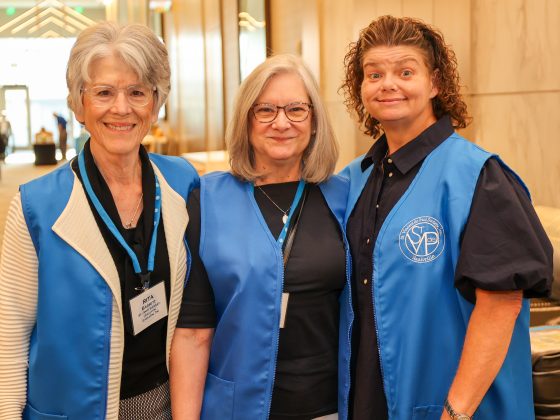Our Rule calls us to be a “voice for the voiceless,” helping the poor and disadvantaged to speak for themselves, but also, when necessary, speaking on their behalf. [Rule, Part I, 7.5] But where do we begin? To whom do we speak? And who are we to presume to speak for anybody?
Blessed Frédéric once pointed out that “the knowledge of social well-being and of reform is to be learned, not from books, nor from the public platform, but in climbing the stairs to the poor man’s garret…” [Baunard, 279] It is through the relationships we form on our Home Visits that we gain an understanding of poverty that cannot be learned by all the academic study in the world. It is this knowledge, and this spirit of friendship with our neighbors in need that gives us our voice.
Like many Vincentians, I think, one of the most eye-opening things I learned when I first began doing Home Visits was how much poverty there was right in my own neighborhood. In most communities, there is no shortage of people willing to help, but there are many people who are quite convinced that poverty is a problem that exists primarily in far-off places; not in their own city, town, or suburb.
What a service we can do simply to let our own communities know that their neighbors are in need. Imagine the outpouring that might happen if people only knew how many were hungry, how many were being evicted, or how many were sitting in the dark after the power had been shut off.
This knowledge we have gained is not our secret to keep, but our sacred trust to fulfill.
Advocacy by Vincentians is not partisan in any sense. Indeed, Frédéric once described the Society as “a community of faith and works erasing little by little the old divisions of political parties…” [Letter 290, to Amelie, 1841] As members, the Rule stated in 1835, we should “abstain from being inflamed by political leanings which array parties in opposition, and from starting among themselves those irritating questions which divide mankind. Our Society is all charity: politics are wholly foreign to it.”
No community, no government, no political party can even begin to solve problems that they do not understand. Among other groups, dedication to the poor may be fleeting, and may change with times or fashions.
We will always remain dedicated, and we will always be a voice for the voiceless, because we believe, with Blessed Frédéric, that this cause is “more ancient and, therefore, more sacred.” [Baunard, 301]
Contemplate
What do my friends and neighbors know about the needs in their communities?



